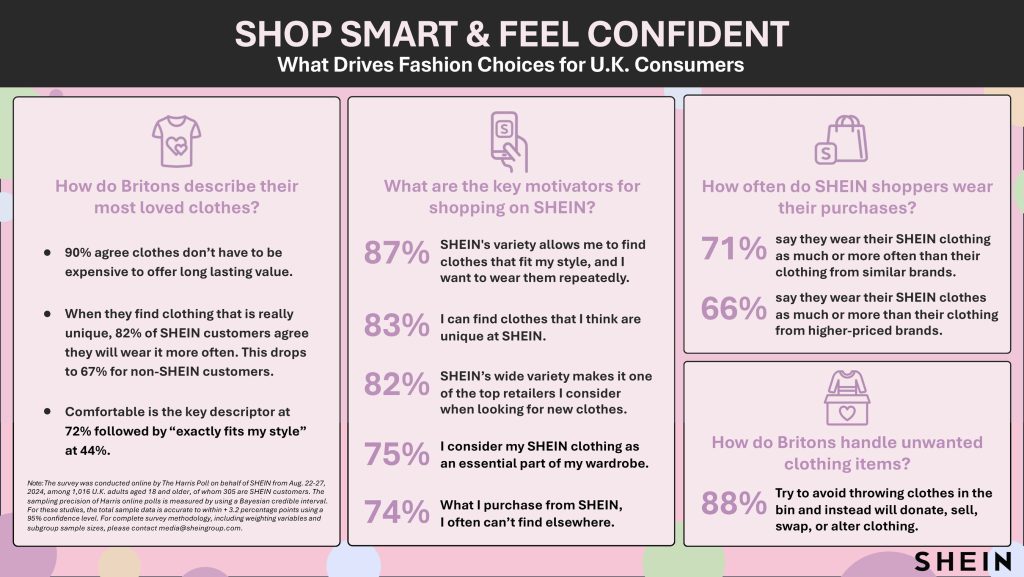Fashion’s perceived value is not necessarily linked to its price, according to new research commissioned by global fashion retailer SHEIN and conducted by The Harris Poll. The study, which surveyed over 1,000 UK adults aged 18 and above, found that a significant 90% of respondents do not associate low-cost fashion items with poor quality. This sentiment highlights the growing recognition that affordability and value can coexist in the fashion industry.
The research underscores the importance of cost-effectiveness in fashion. Nearly half (48%) of UK consumers rank having a diverse range of styles and options as crucial when selecting a fashion brand, following closely behind price (76%) and quality (75%). Among younger shoppers, particularly those aged 18 to 34, the emphasis shifts towards individuality. For this age group, standing out with unique clothing is more important than following trends, with 74% prioritising uniqueness over trendiness (58%). This trend is especially pronounced among SHEIN customers, where 70% value uniqueness compared to 56% of non-customers.
The survey also reveals a significant behavioural insight: when UK consumers find clothing that aligns perfectly with their style, 82% say they will purchase less overall. This pattern is consistent across both SHEIN customers (83%) and non-customers (82%). Furthermore, consumers are more likely to wear clothing more frequently if it feels unique and different, with SHEIN customers (82%) showing a higher tendency in this regard than non-customers (67%).
In terms of usage patterns, 71% of SHEIN customers report wearing their SHEIN items as frequently or more than other low-cost fashion pieces. Similarly, 66% of SHEIN customers wear their SHEIN clothes as often or more frequently than their higher-priced garments. This indicates a strong preference for the value and variety offered by SHEIN, even when compared to pricier alternatives.
The survey also touches on the environmental aspects of fashion consumption. A notable 88% of UK adults avoid discarding clothing, instead opting to repurpose or recycle their items, with SHEIN customers showing similar environmentally-conscious behaviour as non-customers.
Shihong Liu, SHEIN’s Senior Marketing Director for the UK, commented on the findings, stating, “Following the latest fashion trends has always come at a steep cost. Through SHEIN’s on-demand business model, we’ve managed to address this issue. By producing only what customers want, we minimise waste and provide a wide array of styles at affordable prices.”
The results of this survey shed light on changing fashion consumption habits and the role of affordable brands in catering to diverse consumer needs while promoting sustainable practices.
To learn more about SHEIN, visit www.sheingroup.com.


